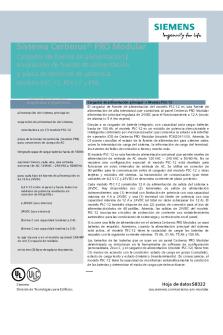PSC 2349-25 - PSC 2349 with Professor Kaplan PDF

| Title | PSC 2349-25 - PSC 2349 with Professor Kaplan |
|---|---|
| Course | International Political Economy |
| Institution | George Washington University |
| Pages | 2 |
| File Size | 40.5 KB |
| File Type | |
| Total Downloads | 16 |
| Total Views | 137 |
Summary
PSC 2349 with Professor Kaplan...
Description
PSC 2349-25 4/21/2016 Poverty and Inequality Inequality: A Philosophical Question - Utilitarianism - “The greatest happiness or greatest felicity principle” – Jeremy Bentham, 1789 (utilitarianism) - Many people are getting wealthier – this is good because incomes are improving - Rawlsian perspective – The most reasonable principles of justice are those that everyone would accept and agree to from a fair position (social justice) o John Rawls, 1971 o What would equalize opportunity for everyone involved v. giving the same weight to everyone o Veil of Ignorance – one can only consider the morality of an issue when they do not know what role they will be assigned Professional Sports and the Salary Cap - The Salary Cap is a Rawlsian example because it impartially situates teams and fans as equals (NFL, NBA, MLS) - Promotion and Relegation System – A utilitarian strategy o Maximizes the utility of all teams and fans together o European Football Inequality: A Development Question - Inequality creates economic incentives - Some people would argue that inequality is necessary in society because it would spur proficiency in economic growth – necessary to drive wealth within the economy - “Rising tide that lifts all boats” - Currently, the US is in a period where there is an extreme level of income inequality o Income concentration at the top might be a necessary condition for improved living standards at the bottom - Utilitarian view Addressing Poverty: When is International Aid Effective? Finance Gap Explanation (1960’s-1980’s) - Poverty results from insufficient physical and human capital - Investing in manufacturing industries would generate growth and rising per capita incomes - International aid should make up the gap between planned investment and available settings
-
-
Governments should bring in high quality institutions and end corruption o The answer is institutions o Multilateral institutions didn’t work because there was too much corruption, lack of skill level and property rights – better bureaucracy that can provide better public services Emphasis on property rights protections
International Aid is Ineffective Market Based Approach (2000s) - Aid is ineffective because of the multilateral organizations that manage aid provision o Aid breeds corruption - Should use market mechanism to better target developing countries, and provide alternatives to bureaucratic prerogatives - Common pool aid that provides vouchers to poor communities that can be exchanged for development services of any aid agency; break the link between aid money and using a particular agency’s bureaucracy. Vouchers could be traded in a secondary market, too China’s Recent Infrastructure Investment - Historic development approach from 60’s and 70’s focused on infrastructure - During the Washington Consensus era, many developing countries had infrastructure development deficits o Easier to cut big infrastructure projects o China sees this - Over the last few decades, China has had an infrastructure revolution - its economy has complete over-capacity of the infrastructure economy - The Chinese model is the initial model of the 60’s and 70’s o Less emphasis on transparency and thinks that may go along with institutional aid o Non-interventionist approach in international affairs o Hands-off approach of sovereign affairs - Beijing Consensus characterized by non-interference -...
Similar Free PDFs

PSC 161 - Week 1
- 7 Pages

PSC 168 Notes
- 42 Pages

PSC vs PBC - Hepatische Erkrankungen
- 44 Pages

PSC 135 - Final Exam Questions
- 4 Pages

PSC 162 Lecture Notes
- 4 Pages

PSC 100-1001 Summer
- 7 Pages

EXAM 3 PSC
- 7 Pages

PSC 2107 Syllabus
- 9 Pages

PSC Chapter 4 quiz F1016
- 2 Pages

DRDP2015 PSC 090116-1 - Notes
- 86 Pages

PSC 308; Devil in the Grove
- 2 Pages

PSC Exam 1 Study guide
- 5 Pages
Popular Institutions
- Tinajero National High School - Annex
- Politeknik Caltex Riau
- Yokohama City University
- SGT University
- University of Al-Qadisiyah
- Divine Word College of Vigan
- Techniek College Rotterdam
- Universidade de Santiago
- Universiti Teknologi MARA Cawangan Johor Kampus Pasir Gudang
- Poltekkes Kemenkes Yogyakarta
- Baguio City National High School
- Colegio san marcos
- preparatoria uno
- Centro de Bachillerato Tecnológico Industrial y de Servicios No. 107
- Dalian Maritime University
- Quang Trung Secondary School
- Colegio Tecnológico en Informática
- Corporación Regional de Educación Superior
- Grupo CEDVA
- Dar Al Uloom University
- Centro de Estudios Preuniversitarios de la Universidad Nacional de Ingeniería
- 上智大学
- Aakash International School, Nuna Majara
- San Felipe Neri Catholic School
- Kang Chiao International School - New Taipei City
- Misamis Occidental National High School
- Institución Educativa Escuela Normal Juan Ladrilleros
- Kolehiyo ng Pantukan
- Batanes State College
- Instituto Continental
- Sekolah Menengah Kejuruan Kesehatan Kaltara (Tarakan)
- Colegio de La Inmaculada Concepcion - Cebu



